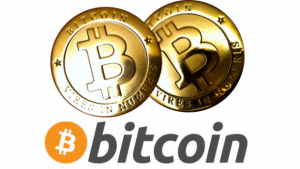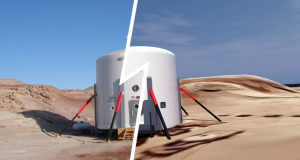Blockchain Meets World, and It’s Awesome!
We’ve gotten used to talking about proposed use cases for blockchain technology in which consensus among multiple entities is a good thing. When everybody can look at the same ledger and agree that, yes, this is what happened and the records are indisputable, we can cut down on the problems of fraud and questionable business practices. Now some entrepreneurs are not just talking about it. They’re doing it.
This is one reason we’re seeing so many ICOs lately. Entrepreneurs are coming up with real-world uses for blockchain ranging from freelancing, to clean energy, to car rentals. There’s talk of using the Ethereum blockchain and mesh networks to create alternatives to large ISPs in the wake of the repeal of Net Neutrality. (Say what you want about Net Neutrality, but it’s pretty cool that people are coming up with private solutions to something they perceive as a problem without going to the government for help.) They just need the cash to make their ideas reality. As one observer put it, “Blockchain is no longer in the ‘proof of concept’ phase.”
Private Market Solutions Anyone Can Participate In
I’ve seen all the arguments on Facebook about social and political issues. I’ve seen those commercials with starving or sick kids and abused puppies. However, we can talk about social issues until we’re blue in the face under the guise of “raising awareness” and it will change nothing until the conversation shifts to solutions that anyone can participate in even if they aren’t as wealthy as Warren Buffett. One thing the blockchain can do is become part of the solution if governments and large corporations stay out of the way long enough for the appropriate applications to become reality and establish themselves in the marketplace.
This is one arena in which free market capitalism is not necessarily a bad thing. Power Ledger, for instance, runs on the principle that solar energy can be bought and sold on the open market using already-established energy grids. Anyone who owns a home with solar panels on the roof gets the same access to the grid as a company that made large investments into solar farms. Don’t count this as investment advice or insider tips, but if you are looking for a less volatile investment than most cryptocurrencies these days, Solar City may make out like a bandit if Power Ledger can establish itself in the U.S. and, of course, accept most major cryptocurrencies as payment.
Wanted: Blockchain Developers to Join New Startup
The adoption of blockchain apps is growing so quickly that blockchain developers are going from the nerd with an idea to a hot commodity. Demand for professionals who know their way around a blockchain has grown by 200% since this time next year and blockchain development ranked second among the top 20 fasted growing job skills. Cryptocurrency developers ranked third — no kidding! Blockchain developers can make $130,000 a year, which is down slightly from last year but a good sign that professional developers are starting to recognize the demand for blockchain apps.
Companies are starting to look into the blockchain even when they don’t entirely understand how it will impact their business and its industry. They may see it as purely a financial thing because of its association with cryptocurrencies, but may have also heard that it can also help with problems like fraud in the supply chain. That means they’ll want to hire or at least consult a blockchain professional who can be counted on to not overhype what this new technology can do for their business.
Is There A Downside?
If there’s any downside to the rush to get into the blockchain niche, it’s that people can get faked out while rushing to put their investment dollars into any venture that uses the word “blockchain”. We saw this when Long Island Tea Company changed its name to Long Blockchain and we’ll probably see a lot more of this when C-Suite executives and investors start grumbling about clunky, poorly designed blockchain applications.
The weakness in rushing to implement blockchain becomes obvious when corporations are too quick to roll out a blockchain app or add blockchain to their name, and then they wind up shooting themselves in the foot because suddenly they’re associated with a blockchain app or business model that just isn’t working.
I liked that supply chain idea for things like faux fur that might not be faux and fair trade chocolate that might not be fair trade. This is a proper use of blockchain apps because it spreads the responsibility of maintaining a ledger that relies on consensus across multiple organizations that need to be able to agree that this is what happened.
However, one should also avoid the pretense that blockchain applications are always going to be applicable in all cases. Some executives may only be interested in implementing blockchain because it’s the latest buzzword. A corporation might only be running it on one or two internal servers and doesn’t let investors and customers inspect the data on it. The blockchain is designed to be transparent, but that does not always help when a corporation’s practices are not always transparent, the corporation tries to hide the data, and it could easily destroy the blockchain anyway. Then the corporation might as well not bother to invest in blockchain technology.
So the blockchain is a good thing if organizations that are interested in it are willing to take the time to study the technology and develop an application that just plain works if they choose to base it on blockchain. Any time you hear on Twitter that nobody’s come up with a good use for blockchain yet or it’s not likely to be adopted for at least ten more years, it’s obvious that they haven’t done much research on what has already been done and what is going to be coming down the pike starting next year. Much of what we’ve seen out of blockchain applications so far is still Version 1.0, but we are likely to start seeing Version 2.0 apps that are mature enough for the real world in 2018.








